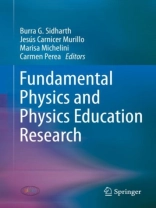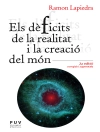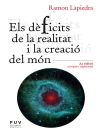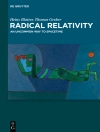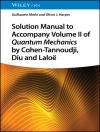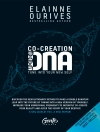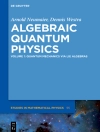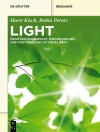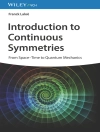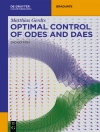This book highlights selected contributions presented at the 15th annual international symposium Frontiers of Fundamental Physics (FFP15), with the aim of informing readers about the most important recent advances in fundamental physics and physics education research. The FFP series offers a platform for physicists from around the world to present their latest theories and findings. The latest symposium was held in Orihuela, Spain and covered diverse fields of research, including gravitation, astronomy and astrophysics, physics of complex systems, high-energy physics, and mathematical physics. Considerable attention was also paid to physics education research, teacher education in physics, and the popularization of physics. In a knowledge-based society, research into fundamental physics plays a vital role in both the advancement of human knowledge and the development of new technologies. Presenting valuable new peer-reviewed contributions submitted from 15 countries, this book will appeal to a broad audience of scholars and researchers.
Содержание
Josephson, Brian, Incorporating Meaning Into Fundamental Physics.- Sidharth, Burra, Twenty Years Of Dark Energy.- Sands, David, Physics Education Research And The Foundations Of Physics. A Case Study From Thermodynamics And Statiscal Mechanics.- De Roeck, Albert, High Energy Physics: Searching For Physics Beyond The Standard Model.- De Azcárraga, José Adolfo, Physics And Mathematics.- Klauder, John, Solving The Insoluble: A New Rule For Quantization.- Peris, Alfred, A Strong Version Of Chaos For Certain Linear Pdes.- Bernabeu, José, Symetries And Their Breaking In The Fundamental Laws Of Physics.- Enders, Peter, Equat Causa Effectum.- Marro, Joaquín, Mind And Phase Transitions.- Siegel, Ethan, Before The Big Bang.- Michelini, Marisa, Innovation Of Curriculum And Frontiers Of Fundamental Physics In Secondary School: Research Based Proposals.- Ellermeijer, Ton, Stem, Inguiry Practices And Technology In Teaching Physics.- Stefanell, Alberto, Student Learning Paths From Exploration Of Optical Diffraction With On-Line Sensors To Formal Interpretative Models.- Sokolwska, Dagmara, Learning Through Inquiry.- Persano-Adorno, Dominique, Inquiry-Based Approach And Numerical Simulations: A Powerful Integration In Condensed Matter Physics Education.- Guisasola, Jenaro , Design-Based Research Approach For Designing And Evaluating Teaching/Learning Sequencies: The Case Of ‘Work And Energy’ At Introductory Physics Courses.- Pospiech, Guesche, Mathematics In Physics Education At Secondary School – Competences And Views Of Teachers And Students.- Peeters, Wim, Workshop: Teachers As Inquirers Of Their Own Practice.- De Almeida, María José, “Scientific Models, Mental Models And Misconceptions In Physics Learning”.- Giudici, Sergio, “On The Mistery Of Large C2“: Offering Personal Involvement In Teaching Data Analysis And Monte Carlo Techniques In Experimental Physics Context”.- Caltun, Ovidiu, “Are Needed “Hand On” Or “Learning By Doing” Activities On Nanostructured Materials?”.- Gkiolmas, Aristotelis, A Combination Of Historical Physics Documents, Combined With Other Teaching Tools, For The Instruction Of Perspective Teachers About Chaos And Complexity.- Buongiorno, Danielle, “Idifo6 Mq_P: A Course For In-Service Secondary School Teachers Education On Modern Physics”.- Buongiorno, Danielle, Research-Based Proposals On Optical Spectroscopy In Secondary School.- Vidic, Emanuela, “Time As Topic Transversal Perspective In Teacher Professional Development Carry Out In The Master In Science Education”. Abserrahim Tahiri, “Novel E-Learning Platform For Physic Labs In The Moroccan Universities”.- Dickau, Jonathan, “Do People In Physics Have A Responsibility To Inform The Public?”.- Gervasio, Mario, “Spettrografo: A Prototype For A Digital Spectroscope”.- Bozzo, Giacomo, “Video Analysis Of Free-Falling Systems Of Reference And Equivalence Principle”.- Bozzo, Giacomo, A Learning Sequence On Rheological Properties Of Fluids..- Carnicer, Jesús, Design And Construction Of A Quantitative Spectroscope For Science Divulgation.- Molteni, Diego, A Simulation Approach To Study A Wave-Particle Coupling Phenomenon In The Field Of Fluid Dynamics”.- Rosario Battaglia, Onofrio, “Response Patterns And Knowledge Conceptual Dimensions In Engineering Freshmen Answers To Force Concept Inventory Questions”.- Pascual Onorato, Microscopic And Stochastic Approach To Physical Phenomena Based On A Dice Toy Models”.- Jiménez, Alejandro, (Non-)Uniqueness Of Einstein-Palatini Gravity.- Fullana I Alfonso, Màrius Josep, Some Improvements On Relativistic Positioning Systems.- Altaisky, Mikhail , Renormalization Of Viscosity In Wavelet-Based Model Of Turbulence.- Lakshmi, B.S., Varying G And Galactic Rotation Curves..- Sidharth, Burra, Report: Dark Anamoly, Nanotubes And Manipulating Decay Rates.- Beckwith, Andrew, Creating A (Quantum?) Constraint, In Pre Planckian Space-Time Early Universe Via The Einstein Cosmological Constant In A One To One And Onto Comparison Between Two Action Integrals.- Dickau, Jonathan, Gravitation By Condensation.-Fernández Pousa, Carlos R., Perfect Phase-Coded Pulse Trains Generated By Talbot Effect..- Sanchez-Guillen, Joaquín, Exact Solutions For Nuclei And Neutron Stars In An Extended Skyrme Model: Geometry And Topology Applied To Strong Interactions Non Linear Dynamics..- Castro, Carlos, On The Riemann Hypothesis, Complex Scalings And Logarithmic Time Reversal.
Об авторе
B.G. Sidharth is a physicist best known for his pioneering work on dark energy (an accelerating universe) and two-dimensional material. Aside from these aspects, his work has chiefly focused on high-energy physics. He has a number of books to his credit, and over 200 papers in leading physics journals. He is Director of the B.M. Birla Science Centre in Hyderabad, India.
Jesús Carnicer Murillo is an associated professor at the Department of Statistics, Mathematics, and Computer Science, Miguel Hernández University of Elche; Pedagogic Director of the Didactic, Interactive, and Science Museum of Orihuela (MUDIC-VBS-CV); and a secondary school teacher for physics and chemistry. His research mainly focuses on science education and in particular science teacher education, producing contributions at both the international and the popular level.
Marisa Michelini is a full professor of physics education at Udine University, Italy, where sheis Rector Delegate for Didactic Innovation and heads the Physics Education Research Unit (URDF). She is President of the International Physics Education Research Group (GIREP), and a committee member of the Multimedia Physics Teaching and Learning (MPTL) and Physics Education Divisions of the European Physics Society (EPS-PED). She is also Director of the Italian University Consortium on Education and Guidance (GEO) and an honorary member of the Italian Association for Physics Teaching (AIF). She has carried out five EU, ten national, and eight regional projects on physics education and teacher education and has authored more than 600 publications in books and peer-reviewed journals.
Carmen Perea holds a degree in Mathematics from the University of Valencia and a Ph.D. in Mathematics from the University of Alicante. She is currently a professor at the Department of Statistics, Mathematics, and Computer Science at Miguel Hernández University of Elche and Director-Manager of the Didactic, Interactive, and Science Museum of Orihuela (MUDIC-VBS-CV). Her research activities are in the field of linear algebra in general and more specifically in the application of control theory to convolutional codes. In addition to a number of articles in this field published in international journals, she has written articles on education and mathematical dissemination.
